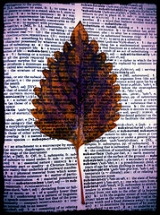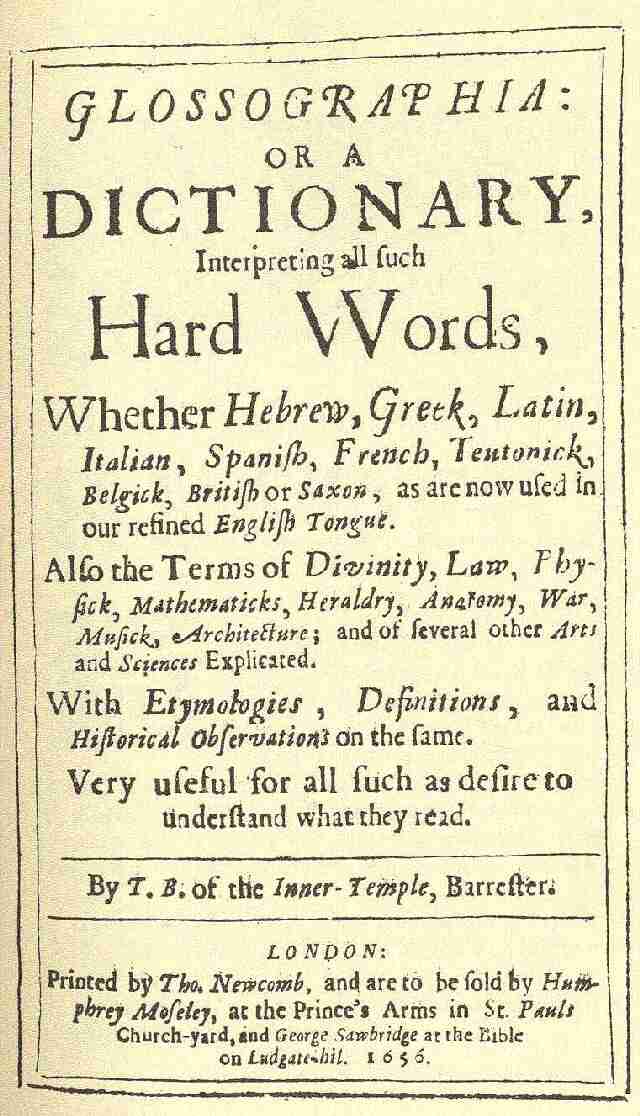
.
Recommended Reading
This page lists around 30 of the works of fiction and non-fiction that I have most enjoyed, along with brief reviews of each. I own each of the books below and would highly recommend them to any adult reader. The enjoyment of any of these books requires nothing except an inclination towards thoughtful literature. As I am an associate of Amazon.com, each book contains both a text and image link to enable you to buy it if you wish. Proceeds from sales made through this page help defray the costs of maintaining this site. I own all the books below; the only exception is that, where the edition I own is out of print, I have included the link to the in-print edition most similar to my own copy. If you have any questions about any of these materials, do not hesitate to contact me and I will do my best to answer your query promptly. Enjoy!
Fiction

|
Cryptonomicon (Neal Stephenson). Stephenson's writing is all excellent, filled with literary allusions and remarkable wordplay, but this is by far the most ambitious and successful of his works, dealing with cryptography and information in a remarkably insightful way. Cryptonomicon is also the best analysis of the culture and psychology of the nerd ever written. | ||

|
Foucault's Pendulum (Umberto Eco). This quirky piece of postmodern literature is already becoming a classic. Eco is a master of prose, and in this thickly plotted masterpiece of secret societies, conspiracies, centuries-old power struggles and arcane half-truths, he is at his very best. While its complexity is not for everyone, it is more accessible than Eco's other work. | ||

|
A Canticle for Leibowitz (Walter Miller). Although written over 40 years ago, Miller's magnum opus ranks as one of the best post-apocalyptic novels out there. Focusing on the social, political and religious implications of a long past societal collapse, it is full of irony and insight regarding how we come to understand history and acquire knowledge. | ||

|
Pavane (Keith Roberts). A classic of the alternate history genre, Roberts' largely-forgotten classic is part fantasy, part high art, and part science fiction in which 20th century England is a pre-industrial Catholic theocracy. Pavane deals with big ideas in an accessible way, and unlike most alternate history, focuses on characters and emotion rather than technology. | ||

|

|

|
A Song of Ice and Fire ( A Game of Thrones, A Clash of Kings, A Storm of Swords) (George R.R. Martin). I hate big, endless fantasy series, but I love this one. This planned 7-book series is far from completion, but the complexity of its plots and the moral ambiguity of its characters put this in a class of its own. |

|

|

|
Titan, Wizard, Demon (John Varley). A remarkable trilogy dealing with a living sentient world/deity and the humans who must discover and deal with it. Varley's alien cultures, complex characters and big ideas are remarkably presented. As far as I'm concerned, much better than Varley's later work. |

|
Dune (Frank Herbert). Herbert's novel is an SF classic. A single messiah figure changes a universe of highly interesting cultures and world-manipulating factions forever, as ancient prophecies come to fruition. The later sequels are of variable quality, and the movie is incomprehensible unless you've read the novel first. Stick with the first book, and you can't go wrong. | ||

|
The Left Hand of Darkness (Ursula K. LeGuin). LeGuin has almost single-handedly built the category of "anthropological SF". In this classic, she uses an anthropologists' visit to an androgynous alien culture to lead readers to examine their own humanity and assumptions about gender. It's not a 'chick book', though, but a brilliant analysis of a truly foreign psychology. | ||

|
1984 (George Orwell). Orwell's gripping novel of "Big Brother" deals, to be sure, with issues of privacy and freedom, but its more important contribution is as an analysis of how language and history interact and are manipulated by political interests. Over 50 years later (and over 15 years after its 'expiry date'), 1984 is still highly relevant and insightful. | ||

|
Tigana (Guy Gavriel Kay). A fantasy in which a small group tries to save all that remains of their land, Tigana - the memory of its existence - before it is lost in the mists of history. Like many of Kay's novels, Tigana is loosely based on history (in this case, Italy and the Etruscans); I recommend it above the others because it stays sufficiently distant from history. | ||
| The Chrysalids (John Wyndham). This is my second-favourite post-apocalyptic novel (after A Canticle for Leibowitz. Wyndham's short novel explores the world of a group of young telepaths in a world where genetic mutation is strictly forbidden by religious law. Unlike many stories of its ilk, The Chrysalids is full of complex moral choices and believable characters. | |||

|
Stranger in a Strange Land (Robert Heinlein). Anyone who thinks Heinlein is just a militaristic right-wing nut really needs to read this tale of a human raised on Mars who returns to change humanity with his philosophical views. Heinlein's libertarian views come through loud and clear, but in a way that values human freedom of thought and expression. | ||

|
Flatland : A Romance of Many Dimensions (Edwin Abbott). This brief 1880 classic is one of the most scientifically informative pieces of science fiction ever written. Abbott presents a two-dimensional world and its efforts to understand three-dimensional reality (and vice versa). Unlike most popular science writing, it presents its ideas concerning space very elegantly. | ||

|
Impossible Things (Connie Willis). Willis is one of SF's most decorated and under-appreciated writers. In this, her best collection of short stories, she reminds us that she belongs in the company of other modern masters of science fiction. Willis presents complex characters and subtle plots that deserve to be read and re-read. | ||

|
The Hippopotamus (Stephen Fry). The best of several humorous novels from one of Britain's comic geniuses, and the only one not even remotely autobiographical. Fry is an adept master of words in this, the cunningly devious and sexually charged story of a journalist and his miracle-worker godson. Fry, as always, shows his abilities as a master of linguistic marvels. | ||

|
The Postman (David Brin). The post-apocalyptic tale of a man who brings hope to isolated communities through the medium of the postal service. It sounds bizarre, but works exceptionally as an analysis of legitimacy, hope and honesty. Avoid the abysmal movie at all costs, especially if you want to avoid picturing the protagonist as Kevin Costner. | ||

|
Frankenstein (Mary Shelley). Though seen in pop culture as a "horror story", Frankenstein is truly one of the first science fiction novels, dealing with a scientist's choice to create sentient life and its moral consequences. It asks what it means to be human, and to what extent we are constrained by our innate nature - with no simple answers. Unlike most 19th century literature, very readable. | ||

|
A Tolkien Reader (J.R.R. Tolkien). What? No Hobbit? No Lord of the Rings? I love all Tolkien, but decided to include this wonder rather than his better-known works. This small book contains some of Tolkien's remarkable Middle-Earth-based poetry, his thoughts on fairy stories, and, most interestingly, the witty novella, "Farmer Giles of Ham". | ||

|
Inversions (Iain M. Banks). This SF mystery is extraordinarily subtle, cunningly structured and morally complex. Banks is a master of the genre, lamentably little-known in North America. In Inversions, his characters defy simple stereotypes and his intricate plot defies all expectations. If I were to say any more about it, I would be giving too much away. | ||

|
Tales of Neveryon (Samuel R. Delany). A post-modern quintet of interrelated novellas concerning a freed slave, Gorgik, and those around him. Delany's work is very literary, and this book is full of complex ideas regarding the nature of civilisation, the meaning of symbols and the social and physical bonds that constrain us. Highly sexually explicit; not for the faint of heart. | ||

|
Lord of the Flies (William Golding). A classic tale of English schoolboys trapped on a tropical island and forced to rebuild society. A highly disturbing and psychologically compelling analysis of the nature of human civilisation and the nature of authority. While not usually classified as such, Lord of the Flies is a remarkable work of SF, one that no doubt will be read centuries hence. | ||
Non-Fiction

|
The Encyclopedia of Science Fiction (John Clute and Peter Nicholls). The ultimate reference work for any reader of science fiction, including not only the expected names and dates but also insightful commentary on the tropes and structure of SF as a literary genre. Very strong on written fiction, it is also an invaluable guide to SF movies and television. |

|
Godel, Escher, Bach (Douglas Hofstadter). Hofstadter exemplifies good science writing: he takes complex concepts such as self-reflexivity, cognition, and number theory, and presents them in an entertaining and easily understandable way. Full of visual and musical imagery, it is also one of the finest works of linguistic trickery and wordplay ever written. Read it! |

|
The Professor and the Madman (Simon Winchester). The compelling tale of the creation of the Oxford English Dictionary and its most important contributor, a man confined to an asylum for most of his life. A must-read for anyone interested in words and lexicography, but also an amazing story in its own right. |

|
Dinosaur in a Haystack (Stephen Jay Gould). Of Gould's many compilations of essays on natural history, this is perhaps the best (though all are very interesting and readable). Gould was the greatest defender of evolution in popular writing, but he was also an entertaining and sometimes profound writer with a keen conscience. |

|
Sociocultural Evolution (Bruce Trigger). The first half of this book is of interest to anthropologists and archaeologists interested in the history of their discipline. The second half is far more insightful and popular in tone, presenting a compelling case that in a troubled world, the concept of sociocultural evolution is absolutely essential to understanding the way the world works. |

|
Human Universals (Donald Brown). An anthropological analysis of that which is common to all human cultures and individuals, written for anyone with even a passing knowledge of anthropology. Brown makes a persuasive case that, far from being irreconcilable, humans of different backgrounds are united by a common framework. |

|
The Origin of Species (Charles Darwin). Everyone knows what Darwin said, but too few have actually read this seminal work on evolution by means of natural selection. Upon reading this 1859 book, you will surely see that Darwin has been misinterpreted and maligned by those whose caricatures of evolution are based on faulty second-hand knowledge of his theories. |

|
The Structure of Scientific Revolutions (Thomas Kuhn). Kuhn's work, probably the most important in the philosophy of science in the past half-century, postulates that sciences move through a series of largely irreconcilable 'paradigms' rather than by a slow and steady accumulation of data and theories. Highly persuasive and influential; easily understandable. |

|
Why I Am Not a Christian (Bertrand Russell). Unlike most secular or humanist philosophy, this book comprises Russell's public lectures on his agnosticism, humanism and political and social ideas. It is thus immediately accessible to a non-specialist audience and presents a well-written and cogent defense of his unorthodox religious and moral standpoints. |

|
Plough, Sword, and Book (Ernest Gellner). Gellner examines the history of civilisation in this brief but compelling book which argues that changes in technology, politics and religion have resulted in the evolution of human ideas and culture. A compelling examination of social evolution, easily understandable to the lay reader. |
I hope you have found this site to be useful. If you have any corrections, additions, or comments, please contact me. Please note that I am not able to respond to all requests. Please consult a major dictionary before e-mailing your query. All material on this page © 1996-2021 Stephen Chrisomalis. Links to this page may be made without permission.








